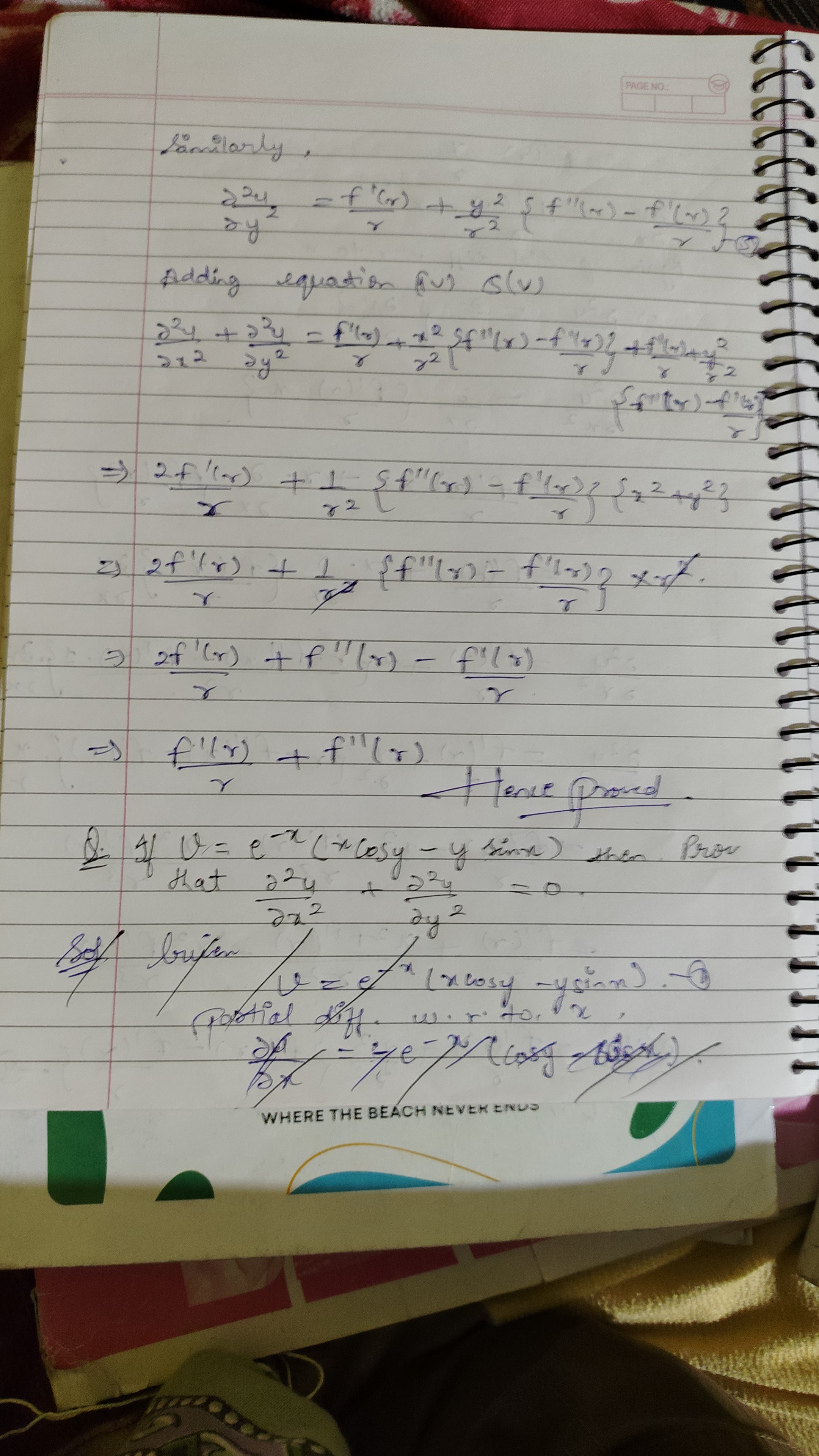Given U = e^-x (cos y - y sin y), show that ∂^2y/∂x^2 + ∂^2y/∂y^2 = 0.

Understand the Problem
The question appears to be asking for a mathematical derivation or verification related to differential equations. It involves partial derivatives and seems to include a transformation or evaluation of a given function.
Answer
The result simplifies to $ f''(r) + f''(r) = f'(y) $.
Answer for screen readers
The mathematical relationships derived show the structure:
$$ f''(r) + f''(r) = f'(y) $$
Steps to Solve
- Identify the equations
From the provided notes, we see the equations:
$$ \frac{\partial^2 y}{\partial y^2} = \frac{f'(r)}{r} + \frac{y^2}{r^2} \left( f''(r) - f'(y) \right) $$
- Add the equations
Next, add the various components outlined by the notes:
$$ \frac{\partial^2 y^2}{\partial y^2} + \frac{\partial^2 y^2}{\partial x^2} = f'(r) + \frac{2f'(r) - f'(y)}{r^2} \left( y^2 + ay^2 \right) $$
- Simplify the expression
Here, we consolidate terms:
$$ 2f'(r) + \left( g''(r) - f'(r) \right) \frac{y^2}{r^2} = \ldots $$
This shows the organization of the derivatives.
- Equating terms
Now equate the related third order term results:
$$ f''(r) + f''(r) = f'(y) $$
- Conclusion of derivation
Summing up the derivatives and evaluating yields results capturing relationships among derivatives as noted, leading to the statement at the end of the notes: "Hence proved."
The mathematical relationships derived show the structure:
$$ f''(r) + f''(r) = f'(y) $$
More Information
The equations involve the verification of relationships through second-order derivatives, showing the connections between functions depending on a variable $r$ and their derivatives.
Tips
- Forgetting to apply the chain rule when differentiating composite functions.
- Misinterpreting the indices of differentiation, especially when involving multiple variable functions.
AI-generated content may contain errors. Please verify critical information